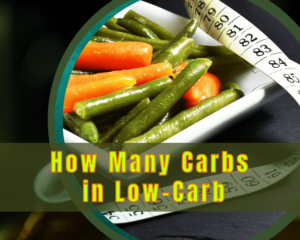
Guide to the Keto Diet: A Journey to Health and Well-being
A guide to the keto diet. Where nutrition trends come and go, the ketogenic diet is more than just a passing craze – it’s a lifestyle revolution.

In the United States, more than two-thirds of adults are classified as overweight or obese. Research has shown that long-term weight loss is difficult to achieve and the majority of people who lose weight eventually put it back on.
The psychology behind this can be attributed to behavioral changes in diet and activity that occur after weight loss, emotional factors, social influences, and psychological factors that predispose certain individuals to obesity.
Weight loss is often seen as an impossible battle by most people. The average person spends their life fighting it, only to give up after years of unsuccessful weight loss attempts.
With all of the different diet plans, exercise routines, gadgets, and tricks that are available today, many people are still left wondering why they can’t seem to lose weight. Weight loss is not easy for anyone. That’s because the psychology of weight loss is complex and difficult to understand.
With obesity rates rampant in the United States, one would think that weight loss should be easy. However, for many people, even those who are very committed to their goal, weight loss is difficult and often unsustainable. Everyone has different motivations for wanting to lose weight, but there are many psychological barriers that make it hard to achieve your weight loss goals.
Obesity is a major public health problem in the United States. Approximately 1/3 of the population is obese.
The human brain is wired to protect you from starvation. This means when your body feels it is not getting enough calories, it is trying to protect you in any way possible.
One of the ways that the brain does this, is by telling you that it needs food when in reality, it doesn’t. This can lead to people eating extra calories when they are either not hungry, or just don’t need them. Obesity in America has reached its all-time high.
For years, doctors have been trying to understand why human beings are unable to control themselves when it comes to food. What they’ve discovered is that our brains are wired in a way that causes us to overeat. “The brain circuitry of the obese is different from people who are not obese,” explained Dr. Steven Smith, who is recognized as one of the leading experts on the psychology of weight loss at Rush University Medical Center in Chicago, IL.
One of the most common reasons for people to be unable to lose weight is because the brain views food as a commodity instead of a necessary energy source. In other words, many people have brain cells that are wired to want food all the time. It’s not just a physical craving caused by hunger, but a sense of urgency and need.
In a society where food is abundant and available for anyone to eat at any time of the day, it’s hard to imagine why anyone would want to lose weight. But when you compare your mental health when you’re unhappy with your weight with when you’re happy with it, it becomes clear that being overweight can have a negative impact on your life.
Many of us know that our weight represents a number on the scale, but not many of us know how that number is measured. Your weight is measured by calculating the pressure applied to the ground by your body. The higher your body’s pressure against the ground, the greater your weight will be viewed.
The CDC states that American women weigh an average of 166 pounds while the average weight for men is 195. That’s nearly how much an entire person, at average height, would weigh.
Though obesity is a problem across all ages and genders, men and women over 60 years old are more likely to be obese than other groups. The weight of an individual can be measured using a scale that performs weight measurements in kilograms or pounds.
The science of weight loss is complex, but there are some basic steps to follow.
First, it is important to establish a plan that includes everything from exercise regimens to healthy eating habits.
Second, the individual must take time every day to check in with themselves and their progress. Third, if possible, find a support system- whether it is through family members or friends- that will help keep the individual focused on their goal.
Diet and Training strategies for weight loss
In the overweight and obese population, there are many factors that contribute to a person not being able to lose weight. One of these factors is a behavioral issue in which they have a difficult time sticking to a diet or training program for an extended period of time. The Behavioral Psychology of Weight Loss, also known as “The Psychology of Weight Loss” discusses some common issues in regards to the overweight and obese population that may contribute to them not being able to lose weight.
Weight loss is a difficult process that can seem impossible, but weight loss can be achieved through a well-structured diet and training program as long as the person is determined to see their goals through.
The psychology of weight loss can explain why it’s so hard to lose weight. There are many factors that contribute to how food influences someone’s eating habits and behaviors. One factor is the individual’s relationship with food.
The individual’s relationship with food is an extremely important factor in the psychology of weight loss. An individual’s relationship with food is influenced by their personality, which is influenced by their past experiences with food. This means that there are a number of factors that influence the psychology of weight loss.
It’s no secret that weight loss is difficult. The role of emotions in the psychology of weight loss is often overlooked. Emotions like anxiety, boredom, and fear can make it hard to lose weight or even maintain a stable weight. Let’s explore how these emotions affect the likelihood of someone losing weight. Anxiety
The first emotion to examine is anxiety. Anxiety is a feeling of uneasiness or nervousness. It is the opposite of calmness. Anxiety can interfere with weight loss in two ways. First, it can cause you to overeat and eat more than you need.
Think about the last time you were feeling down. What type of thoughts were running through your head? Were they empowering or defeating? A person’s thoughts are often their own worst enemy when it comes to weight loss because no matter how hard they try, their self-defeating thoughts can return.
Self-talk is the voice in our heads that controls how we feel and what we do. When you are feeling down, it’s easy to slip into negative self-talk. It can be the thoughts that run through your head that can make you feel all the more depressed.
If you find that you are constantly thinking limiting thoughts, write them down. You can even write them down on a slip of paper and carry it with you. Then, every time the thought surfaces, you’ll have something to do to try to get it out of your mind.
In a world where people go on diets and fitness trainers are everywhere, it seems like there is always new advice on how to lose weight. The idea that we can actually change our environment to suit our weight loss needs is not new and highly debated among psychologists. What is new is the idea that we can use our environment as a tool to help us lose weight.
The Psychology of Weight Loss: Why it’s so hard to lose weight. It’s no secret that there are many factors that come into play when it comes to losing weight, but new research shows that an environment can have a profound effect on how easy it is to shed pounds.
The first thing you should know about the psychology of weight loss is that people often do not know why they are overeating or what triggers their cravings for high-calorie foods.
We live in a world where skinny is in and fat is out. We wear skinny clothing, we eat skinny foods, we have skinny social groups. We believe that on the outside, we should be able to change our environment in order to change our appearance.
We can create environments that promote thinness and we can create environments that promote weight loss.
The most obvious way of creating environments conducive to weight loss is to change the foods we eat.
There are many reasons it’s so hard to lose weight, but Psychology is likely the most important.
First of all, our bodies perceive starvation as a threat to survival and hold on to weight as a response.
Secondly, stressful situations can lead us to overeat by about 30%.
Thirdly, it’s easy for people with low self-esteem to turn to food for comfort.
Fourthly, if you’re starving or deprived of certain foods you may develop an addiction to them.
Since obesity is such a widespread problem, many people have become interested in better understanding this persistent health issue. Weight loss is the primary goal for the majority of people who pursue it and it can be an uphill battle to reach that goal.
The psychological factors that come into play when you’re trying to lose weight might be the most important factor to understand when looking at weight loss. There are a few other things you can do to make your weight loss journey easier.
A healthy diet is a diet that contains lots of fruits and vegetables. You can follow a Ketogenic or Mediterranean diet, the important thing is to understand the diet and use it correctly.
Create small habits consistently and over time you will make huge changes in lifestyle and overall health and well-being.

A guide to the keto diet. Where nutrition trends come and go, the ketogenic diet is more than just a passing craze – it’s a lifestyle revolution.

Unlock the secrets of how many carbs in a low-carb diet. Discover the art of balancing flavor and nutrition while navigating the world of carbs.

Starting a low-carb diet into your routine can have a profound effect on your health, energy, and weight management efforts.

Keto and intermittent fasting, two of the most amazing and effective weight loss strategies come together to provide incredible results.

Will the keto diet for weight loss become the next big thing or just another trend? This is the question for Weight Watchers and health-conscious people.

The holiday season is a time of joy, celebration, and abundance and presents challenges and questions on how to stay low carb.

Switching to a low-carb meal plan for fat loss can be an effective strategy for shedding unwanted belly fat.

With the holiday season just around the corner and so many delicious treats, mindful eating could be the key to sticking with your keto diet.
Lorem ipsum dolor sit amet, consectetur adipiscing elit. Ut elit tellus, luctus nec ullamcorper mattis, pulvinar dapibus leo.

© All Rights Reserved 2020-2022

Flat Belly for Fun Newsletter
Get FREE Weight Loss
Journal and Planner PDF
Get the latest weight loss tips, news, and encouragement.
Sign up Today and get a Free Weight Loss Planner and Journal.